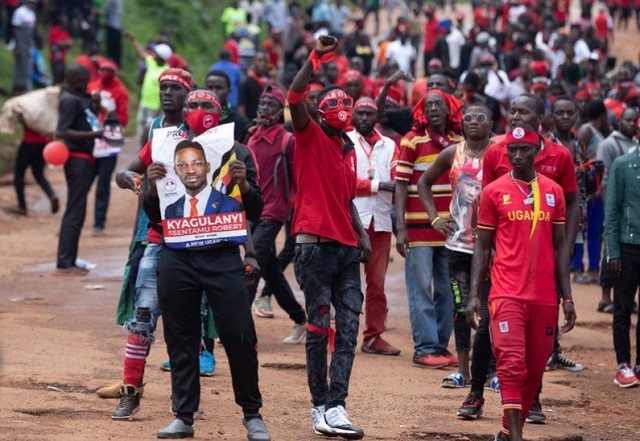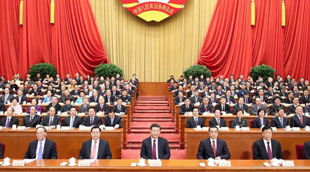
Research shows why he is running out of options
| THE INDEPENDENT | New research by professors from Makerere University Kampala and the University of Sheffield in the UK has been released in an attempt to explain how President Yoweri Museveni and the ruling NRM government are fighting to maintain dominance of the political scene in the face of an increasingly organised and youthful opposition.
They say Museveni’s political party – the National Resistance Movement – has been the ruling party in Uganda since 1986. But its popularity has now hit rock bottom in the country’s urban areas, particularly among young people.
Kampala, like most of Uganda’s urban areas, has long been an opposition stronghold and the urban challenge to Museveni was clear even before Bobi Wine arrived on the political scene in 2017.
The research titled ` Carrot, stick and statute: Elite strategies and contested dominance in Kampala’ was done by Makerere dons Nansozi K. Muwanga of the Department of Political Science and Public Administration, and Paul I. Mukwaya from the Department of Geography, and Tom Goodfellow from the Department of Urban Studies and Planning, University of Sheffield.
The research is highlighted in the current online journal The Conversation but it was written in June 2020.
The authors say that by 2020, having held power for 34 years, Museveni is among the longest standing current rulers in Africa, representing one of the most remarkable stories of continued dominance by a particular ruling elite in modern times (outside of communist one-party systems). This undeniable dominance has, however, never fully extended to the capital city, Kampala.
“Kampala has stubbornly resisted submitting to the NRM’s political grip for over three decades, despite both overt and covert attempts to control it,” the say.
Pointing out the political and economic significance of Kampala, which is the administrative and political capital, as well as focal point of oppositional politics and youth organisation, they say threats to Museveni and NRM’s dominance in the city have become more pronounced since 2017, with the emergence of Robert Kyagulani (aka Bobi Wine) as a major political figure with an urban support base.
But the authors point out that Museveni’s opposition in Kampala has also failed to weaken the central government’s control over urban governance and resources in any sustained way.
“The result is a continued impasse: the regime may rapidly be running out of options in its quest to fully dominate the capital, but time and again it has shown it can do enough to prevent urban opposition from becoming transformative or threatening the regime’s power and legitimacy nationally,” they say.
The analysis is categorised under subtitles like `The iron fist: Persecution, suppression and containment of political dissent’ and `More NRM than the NRM: The co-optation,infiltration and dismantling of political opposition’.
They describe the NRM government’s use of tear gas, sticks and guns and vgilantes and plainclothes militias, such as the Black Mamba, Kibooko Squad, Kalangala Action Plan (KAP), Popular Intelligence Network, Arrow Boys, Amuka Group, Labeca group, Crime Kifeesi Group, and several other groups, to quell opposition mainly in Kampala.
Under co-optation and infiltration, the point at how Museveni takes great care to keep influential figures in the city onside, including those from all the city’s major religious institutions. He rarely misses important religious functions in Kampala, they say. And he courts official opposition figures with promises of cabinet positions and cash handouts. Museveni reportedly targets cash-strapped opposition members with a view to draw a wedge between opposition forces and eliminate any possibility of unity and cohesion among opposition politicians.
They point out how, when Museveni finally announced a new cabinet immediately after the 2016 elections, newly co-opted members included former opposition politicians from Kampala such as Beti Kamya of the Uganda Federal Alliance, who was made minister for Kampala and metropolitan affairs, and Florence Nakiwala Kiyingi, who was made minister of state for youth and children affairs. After her appointment as minister for Kampala, Beti Kamya, a former FDC insider, promised to reverse the NRM’s especially poor performance in Kampala in 2016, by delivering them 80% of the city’s vote by 2021.
According to the researchers, carrots come in the form of job offers or cash, while the sticks include blocking access to jobs or businesses.
In the case of Robert Kyagulanyi, they say, the government blocked over 124 concerts planned by the music superstar in 2020.
 The Independent Uganda: You get the Truth we Pay the Price
The Independent Uganda: You get the Truth we Pay the Price



I think it is not true that it is only the Urban youths that Mr. Museveni Tibuhaburwa has failed to win over to his NRM. This is because if not all, the urban youths hail from rural setting, and therefore have village peers who look up to them for social, economic, political information and/or development in the country.
The urban youth who erk a living in the urban setting throughout the country always send part of their earning to support their village/rural folks; therefore have strong Social, economic and political opinion influence on the rural folks.
In other words, Mr. Museveni’s longevity in office/power is not because of his ideological popularity and/or democratic credential with the rural folks, but his vicious war mongering, corrupt, dictatorial and tyrannical practices.
E.g., after the bloody 18th and 19th November massacre (54 dead and hundreds injured and imprisoned incommunicado); with straight faces Gen Tibuhaburwa and religious leader assembled in State House for a Thanks Giving Prayer!